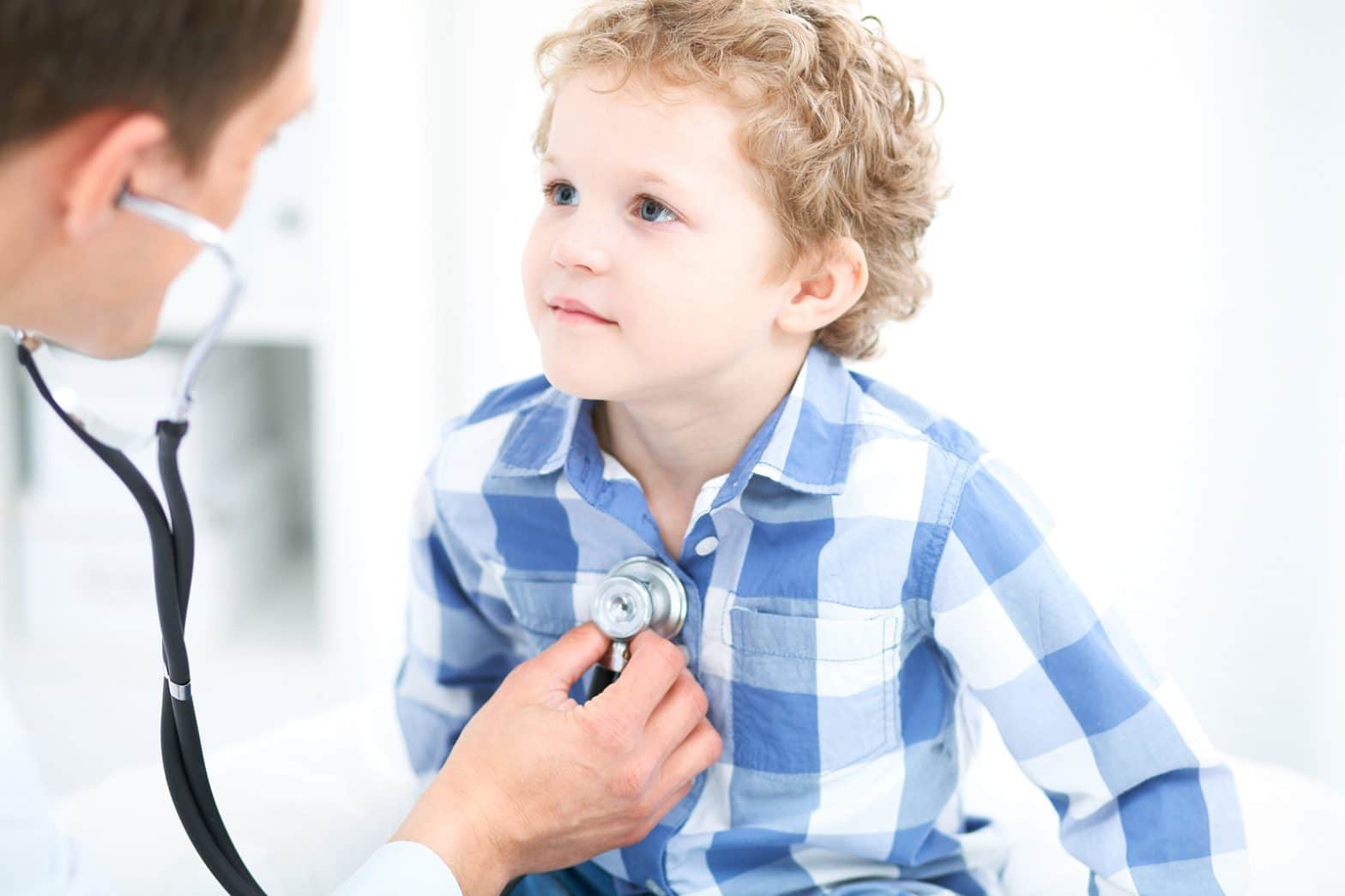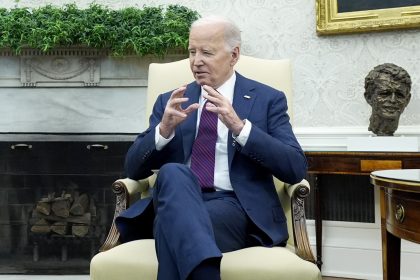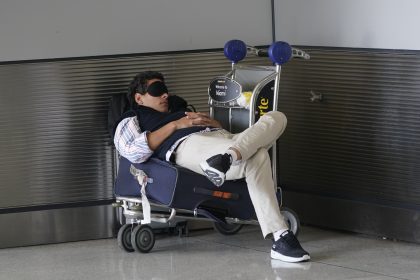The Youngest Children Are Falling Out of Health Insurance

WASHINGTON — The first years of life play an outsize role in human health. They are foundational to the development of the brain and the cardiovascular, immune and metabolic systems. Early childhood is when medical interventions to correct problems in any of those areas are most likely to succeed.
So, for many health experts, the most troubling aspect of a recent increase in the number of children without health insurance is a spike in the number of uninsured kids under 6. That figure has climbed above a million for the first time since most of the Affordable Care Act was implemented in 2014, according to a recent analysis of census data by researchers at Georgetown University’s Center for Children and Families.
“Those years set up the trajectory for health into adulthood,” said Dr. Olanrewaju Falusi, an assistant director at the Children’s National Hospital in Washington, D.C., and a spokeswoman for the American Academy of Pediatrics. “This is very alarming to me, to say that young children are becoming uninsured at a higher rate.”
The American Academy of Pediatrics recommends that children visit the doctor at least 14 times before they turn 6 years old. During those visits, they should receive speech, hearing and vision tests, as well as screenings for genetic disorders and the possible effects of trauma or toxic exposure.
The U.S. Centers for Disease Control and Prevention recommends that children under 6 receive numerous vaccinations, including for hepatitis A and B, diphtheria, whooping cough, polio, chicken pox, and measles, mumps and rubella.
Al Race, deputy director at the Center on the Developing Child at Harvard University, said a lack of coverage often leads to a lack of health care. Without it, health problems that might have been corrected can persist into adulthood.
“It’s never too late to address problems,” Race said, “but the earlier you can catch them, the easier it is and the better results you’ll have to put things back on track.”
The Georgetown researchers found that the rate of children under 6 without health insurance climbed from 3.8% in 2016 to 4.3% in 2018. Thirteen states had statistically significant increases in either the rate or number of young kids without insurance. Eleven states — Alabama, Florida, Georgia, Illinois, Kentucky, Missouri, Ohio, Tennessee, Texas, Washington and West Virginia — had significant increases in both.
The report notes that children are more likely to be uninsured in states that did not expand Medicaid under Obamacare, which would have extended eligibility to all adults earning less than 138% of the federal poverty line. Studies show that parents in Medicaid are more likely to enroll their children in Medicaid or the Children’s Health Insurance Program, public health plans for families with lower incomes.
Only Minnesota had a statistically significant decrease in the number of uninsured young children, the report said. Minnesota expanded Medicaid in 2014, as soon as the ACA allowed.
The results dovetail with the ongoing trend of children under 19 losing their health insurance. The overall rate of children without coverage increased from 4.7% in 2016 to 5.2% in 2018.
A big factor in that rising rate was a drop-off in children under 19 enrolled in Medicaid and CHIP. According to another Georgetown analysis, in a 20-month period from December 2017 to August 2019, the number of children under 19 in those two programs declined by 2.9%.
Children under 6 had a higher uninsured rate in 2018 than children 6 to 18 in seven states: Kentucky, Nebraska, North Dakota, Ohio, Pennsylvania, Rhode Island and Wyoming.
The steepest increases in the rate of young children without health insurance between 2016 and 2018 occurred in Missouri (up 1.7 percentage points), West Virginia (1.5), Ohio and Tennessee (1.4) and Kentucky (1.3).
West Virginia had the largest percentage increase in the number of young children without health insurance (70%), followed by Alabama and Kentucky (51%) and Tennessee and Missouri (46%). None expanded Medicaid under the ACA.
Texas, another non-expansion state, had by far the highest number of uninsured children under 6, around 198,000, and the second-highest rate of uninsured kids of that age (8.3%), behind Alaska (9.2%).
Adriana Kohler, policy director of the advocacy group Texans Care for Children, laid much of the blame in Texas on unreasonable paperwork and deadlines for parents to provide income verification to keep their children enrolled in public health plans. “It’s a very messy, chaotic system in Medicaid,” she said.
Kohler blamed the Trump administration’s attacks on Obamacare, such as spending less money to help educate consumers and enroll them in health insurance, for a decline in coverage among both children and adults.
She also said that an increasingly anti-immigrant climate has made many immigrants afraid to sign up their children for public programs such as Medicaid and CHIP, and that Texas has cut programs intended to help people enroll in health insurance.
The Texas Health and Human Services Commission, which runs Medicaid and CHIP in the state, did not respond to specific questions from Stateline about the uninsurance rate among young children. It emailed a statement saying, “HHS team members work hard every day to enroll and provide quality health care benefits for Texas children who qualify for the programs we administer in Medicaid and the Children’s Health Insurance Program.”
However, Kohler said, the Texas lieutenant governor and speaker of the House this fall directed state lawmakers to examine ways to increase the overall health insurance rate in the Lone Star State.
Jessica Ice, executive director of West Virginians for Affordable Health Care, said that in her state, drug addiction is a major factor in the higher rate of children without insurance.
Households where family members are struggling with addiction often are in turmoil, and in some cases children must be placed in foster care. In such chaos, Ice said, parents may not take the necessary steps to get their kids covered.
Maureen Corcoran, director of Ohio’s Medicaid program, said her state was particularly concerned about being one of the few Medicaid expansion states where the uninsured rate among younger children was higher than among older kids.
Corcoran said Ohio is studying why children lose Medicaid and CHIP coverage, and trying to improve how county offices enroll and re-enroll families.
“We know many of those children are eligible,” she said, “so we want to find out and work with counties to do whatever additional outreach or system changes” can get more kids covered.
———
©2020 Stateline.org
Visit Stateline.org at www.stateline.org
Distributed by Tribune Content Agency, LLC.
























